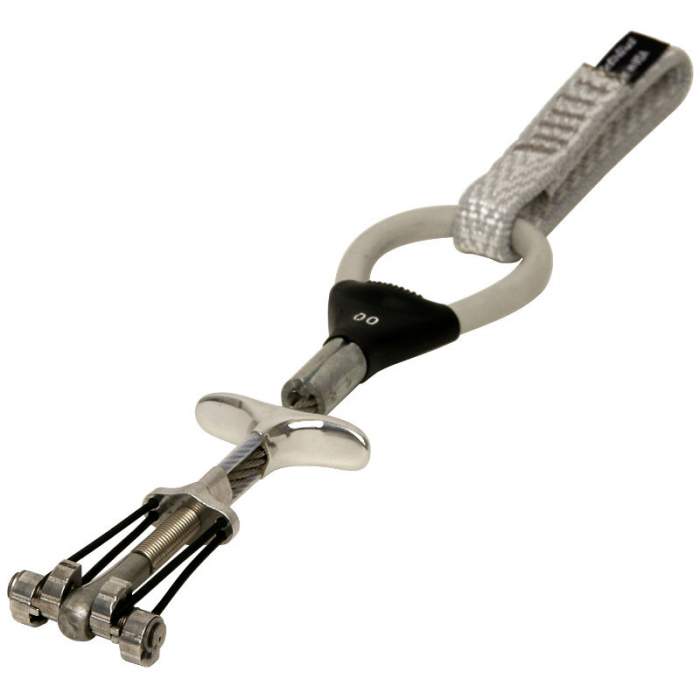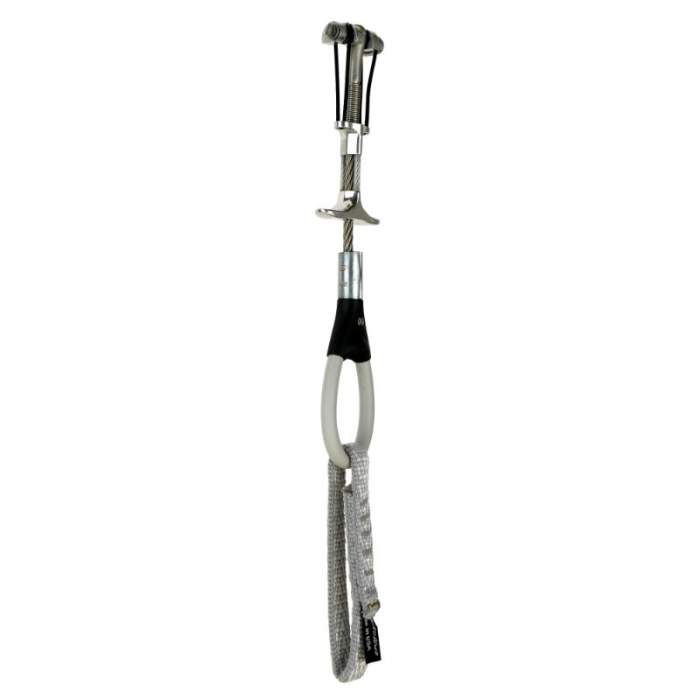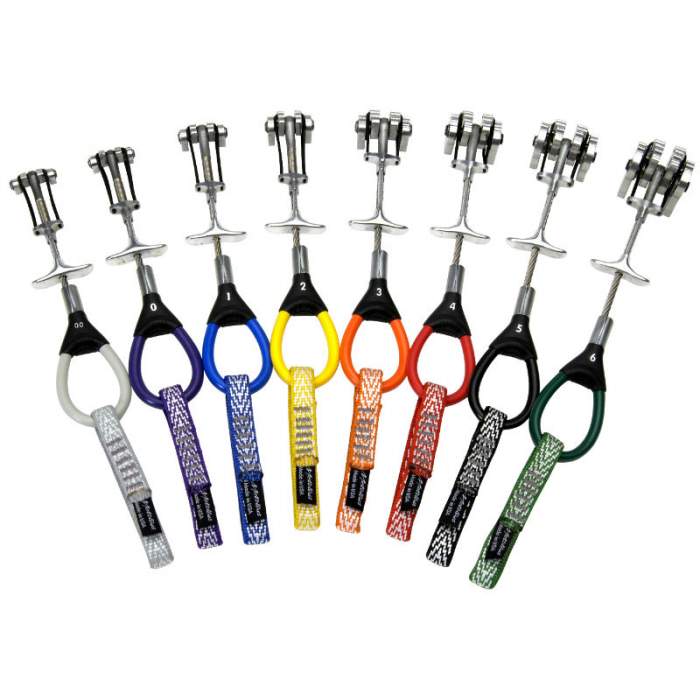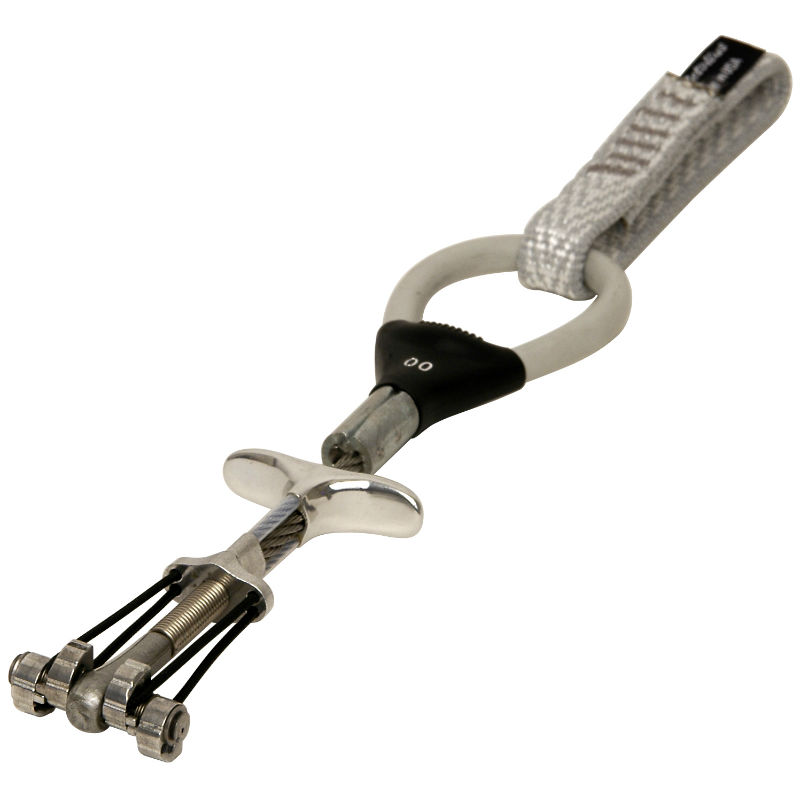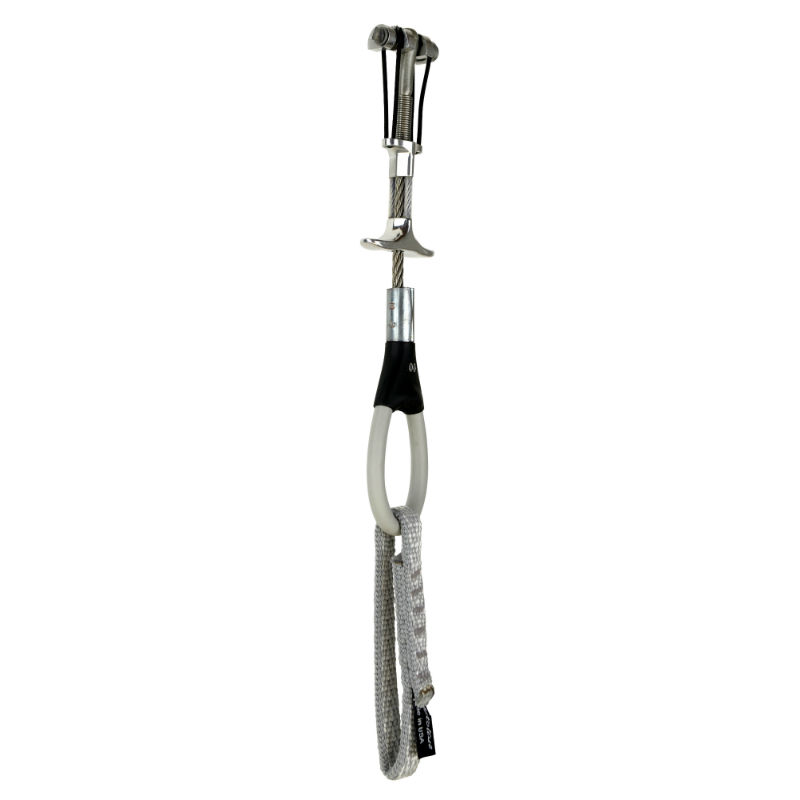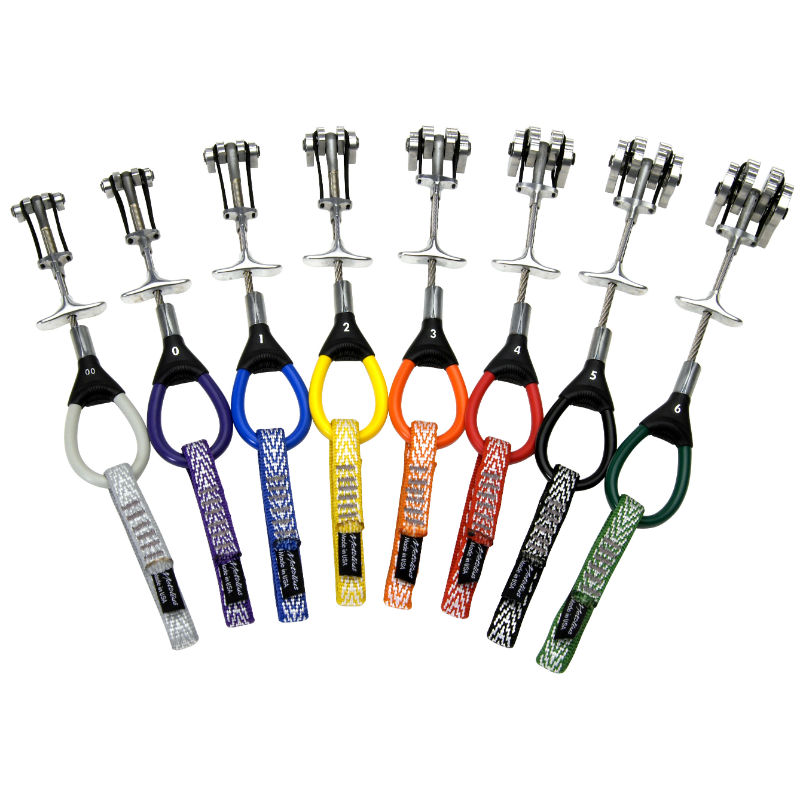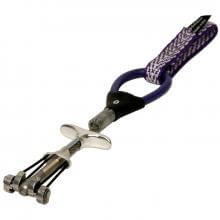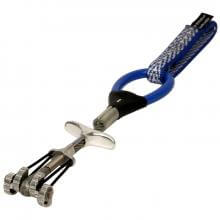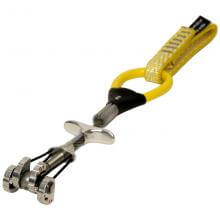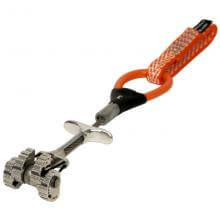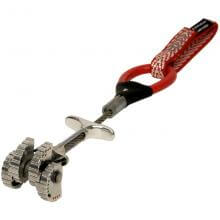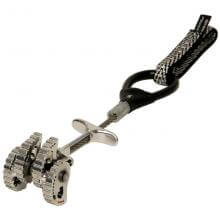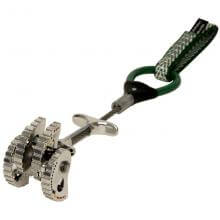Master Cam 00
Description
• A flexible, single stem unit with an ultra-narrow head width for hard aid or free climbing
• Molded thumb piece
• 13 mm (0.51") Monster Sling webbing (36% Dyneema/64% nylon)
• Range Finder tells you at a glance if you've chosen the right size cam for the placement
• Optimized cam angle for more outward force
• Machined cam stops
• Color-coded sewn slings and tubing
• CNC machined for much greater precision than stamped or extruded cams
• 7075-T6 aluminum
• Sizes #00-#6
• CE/UIAA certified
• Hand built, inspected and individually proof tested in Bend, Oregons
Retail price
This Product is Hard to Find.
We don’t know where you can buy this item online in the US. We’ll continue to check all the major retailers and will update this page as soon as we find one.
If you know where to find this online in the US, let us know, and we’ll add the link.
Weight (g / oz)  Weight (g / oz)In grams and ounces, the weight, as stated by the manufacturer/brand. | 62.0 g / 2.20 oz |
| Cam Head | 4 lobes, single axle |
| Offset | No offset |
| Stem | Flexible single stem |
| Sling | 9 cm x13 mm Nylon / Polyamide (single sling loop) |
| Camming Angle | 13.25° (angle is consistent throughout) |
| Active Strength | 5 kN |
Cam Range (mm / in)  Cam Range (mm / in)In millimeters and inches, the maximum dimensions of the cam lobes when shut tight and fully extended. Since the "usable" range is so debatable, all manufacturers now list the full dimensions to avoid selling themselves short. For offset cams, we'll list the max dimensions possible and then afterwards list each of lobe dimensions. | 8.3 - 13.9 mm (0.33 - 0.55 in) |
| Materials | Main Material: 7075-T6 aluminum |
| Certification | CE, UIAA |
No reviews yet.
The cam durability has been great. One area that has not held up as well on some cams is the plastic coating on the cable clip and loop. This is mainly just an issue if you aid climb. After a lot of bounce testing, we find this plastic starts to wear away, exposing the metal cable. This is not only a comfort concern (it is uncomfortable on your fingers when pulling the trigger), it also means the runner attached to the cable might be more likely to break in a fall. Again, this is only an issue if you aid climb a lot.
On my rack, the #3 is the largest one I own and I switch to Camalots after that because I like the rigidity of a 2 stem unit when the heads get bigger. I find the 5 and 6 Master Cams a bit unwieldy with their larger heads and single cable, but others seem to like them fine and I may change my mind about that one day. Certainly for the money ($59.95 each) I don’t think there is a better cam on the market today.
Metolius Master cams work great for strait up trad rock routes, but are also a valuable part of any alpine climbing rack. There are plenty of times when slotting a cam comes in very handy, whether it be running protection or to set up an anchor from which to belay your second. Investing in and building up a climbing rack is something I think every climber enjoys. The Metolius Master cams are a good choice for anyone.
Master Cams are best known for their small units and tend to be labelled as specialist pieces of gear, so Metolius was keen for me to try the larger sizes of Master Cam to show that they can stand up as a workhorse in ordinary sizes. The first impression on handling Masters was that they had unusually strong springs, with an audible snap. In use I found they seated extremely well with the combination of strong springs and flexibility keeping the head rock steady. I pretty quickly found myself reaching for the Master Cams in preference to whatever else I was carrying simply because they went in so reassuringly. I never found the reduced camming range to be a problem but it does mean you need to carry more cams. To cover the 19-100mm range means making up the largest sizes with another cam: using Dragons you would end up with 7 cams (4 Masters and 3 Dragons) weighing 1130g
The Master Cam has an extremely successful design—it’s built on the success of the CCH Alien with a few added Metolius’ trademark features (e.g. cam angle).
My size 0 Master Cam hasn’t left my rack since I bought it several years ago, and the black size 5 that I tested this season has seen steady use from day one. Those two cams have been placed on climbs ranging from local crags to alpine destinations and they continue to hold their own in the increasingly competitive small-cam market.
Light, practical, and relatively inexpensive, the TCU is absolutely the most valuable cam for aiding; bring them on every big wall route. I recommend sizes 1-4, as they fit in pin scars and pods everywhere in Zion. The small offset TCUs are fantastic for thin aid climbing as well. The biggest drawback of these pieces is their lack of flexibility. In meandering cracks or climbs with multiple cracks, they can walk and become a lot less secure; if in doubt, put a sling on that cam. I also get a lot of use out of the Metolius Master cam. The black #5 Master Cam is perfect for that terrible size between fingers and hands where other cams would be insecure. For Master Cams #2 and below (yellow, blue, purple, and grey), I feel the lobes are too narrow, providing less surface area than other cams in this size range. The smaller Master Cams can also be awkward because the width of the trigger can cause problems when placed deep in a crack.
I’ve used Metolius cams since the early 1990s and have always been impressed with their durability and strength. My only beef has been that my big hands just don’t fit their other U-stemmed cams. Now, with the Master Cams, Metolius not only fills the narrow-head-cam niche near perfectly, but puts out a unit that fits Papa Bear just right.
Ultimately, it's hard not to compare the Master Cam to its peers, like Black Diamond's C3 and the CCH Alien. The Master Cam just doesn't have the range that the Alien has. The difference is slight, but important for some climbers. The proportionate range is comparable to the C3. The narrow head of the Master Cam allows for shallow placements, similar to the C3 and Alien. However, those three-lobe cams will always fit in more shallow cracks better than a four-lobe model like the Master Cam. In the end, a narrow head design, coupled with the Master Cam's single stem and standard expansion range make this a solid
competitor in the world of small cams.
Pros: smooth action; rotating stem to accommodate horizontal cracks; lack of stem housing; narrow lobe width; inexpensive factory repair program.
Cons: smaller expansion range than CCH Aliens; four-lobe design limits placement in super shallow cracks.
Beth Rodden shows you how to inspect and maintain your cams.
This video goes behind to the scenes of Metolius lab and shows how the Master Cams are made.

